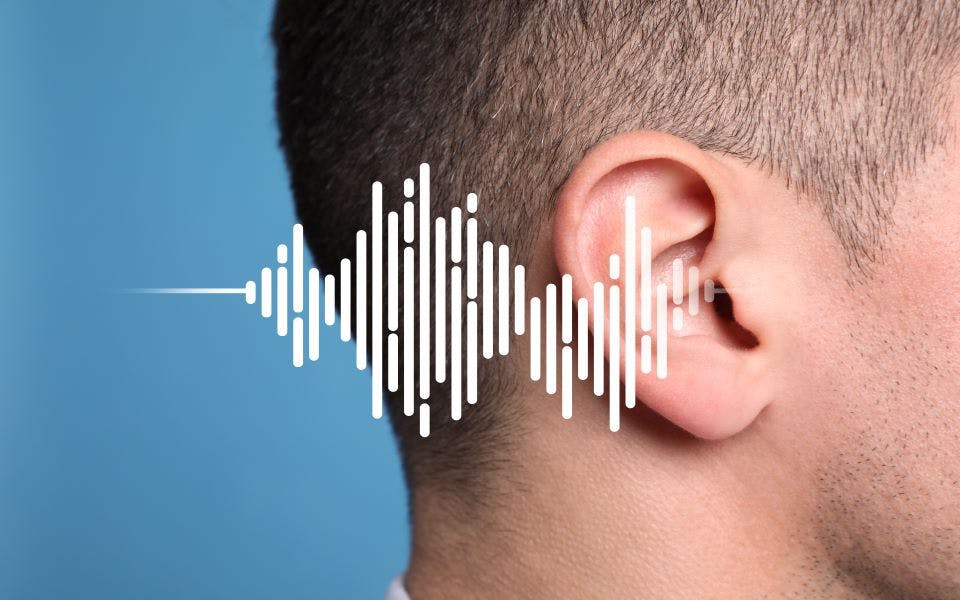You may have hearing loss and not realize it. It’s common for family, friends and coworkers to notice your hearing loss sooner than you. That’s why bringing a companion to your first appointment at Hearing Associates is important. That person can give your audiologist a different perspective on your hearing loss.
But how is it possible not to know you have hearing loss?
How Frequency and Intensity Affect Sound Perception
Hearing loss doesn’t just involve the volume of sounds. Your ability to hear a sound depends on its frequency and intensity.
Frequency: This measurement involves how fast sound waves vibrate per second. High-frequency sounds produce more vibrations per second than their low-frequency counterparts. Frequency is also called pitch, so high-frequency sounds have a high pitch, and low-frequency sounds are low-pitched.
Intensity: Intensity measures a sound wave’s power or loudness. A shout produces a higher intensity sound than speech at a normal volume.
The sounds you hear are a combination of frequency and intensity.
For example:
- A whistle blow has a high frequency and a high intensity.
- A tuba has a low frequency and a high intensity.
- Rustling leaves have high frequency and low intensity.
- The hum from your refrigerator has low frequency and low intensity.
What is the Sound Void®
Comprehending how hearing and sounds work can help you understand Sound Voids and make your hearing health a priority. That term refers to any moment lacking mental clarity, which can happen anytime. Sound Voids have a lot to do with why your companion may have picked up on your hearing loss before you did. They are more likely to notice those moments of mental confusion and how they affect your ability to interact with others.
Any condition that affects your hearing can create the Sound Void, including:
- Allergies
- A cold
- Excess earwax
- Ear infections
- Head, neck or ear trauma
The Sound Void is also common with noise-induced and age-related hearing loss, so sound frequency is the problem, not intensity. You might have trouble hearing high-frequency sounds and words that include “s,” “sh,” “f” and “th.”
Trouble hearing women’s and children’s voices is another common sign of high-frequency hearing loss. So, you may hear people speaking but struggle to understand what they’re saying or mishear their words. It’s important to understand that hearing loss and the Sound Void are separate issues. So, you may think you’re experiencing the Sound Void when you’re actually exhibiting early signs of hearing loss.
How the Sound Void Changes Over Time
You could experience the Sound Void more frequently as you age, especially if you live with untreated hearing loss. A sign of more frequent Sound Voids may come from those around you. Have your family and friends voiced suspicions about your hearing loss? That could indicate you’re missing conversations and interactions, despite the coping skills you’ve established to compensate for your hearing loss.
Common signs of hearing loss include:
- Turning up the TV or radio to excessive volumes
- Asking others to speak up or repeat themselves frequently
- Struggling to hear conversations over the phone or in noisy places
- Experiencing fatigue after socializing
Sound intensity can eventually become a problem if you sustain significant hearing damage. You’ll likely miss low-frequency sounds and words that use “o,” “i” and “j.”
The Importance of Hearing Evaluations
The sneaky nature of some types of hearing loss is the reason your companion is such a key part of knowing when it’s time for a hearing evaluation. They may have noticed early symptoms of hearing loss and changes in your behavior. A thorough hearing evaluation will determine the cause, degree and type of your hearing loss. And your companion can provide your audiologist with insight into how your hearing loss affects your daily life.
Call 888-760-2032 or contact us online to schedule your appointment.


